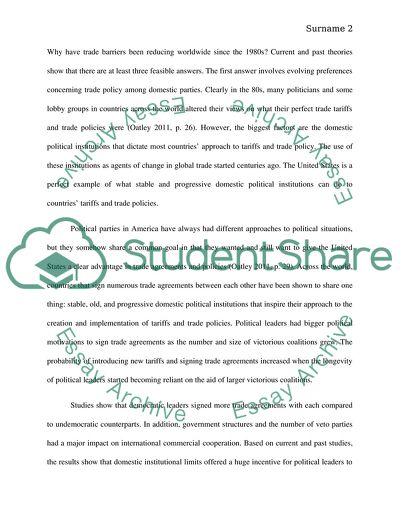Cite this document
(Importance of Domestic Political Institutions in Shaping the Outcomes Essay Example | Topics and Well Written Essays - 1250 words, n.d.)
Importance of Domestic Political Institutions in Shaping the Outcomes Essay Example | Topics and Well Written Essays - 1250 words. https://studentshare.org/politics/1847301-drawing-on-at-least-three-separate-tariffs-or-trade-policies
Importance of Domestic Political Institutions in Shaping the Outcomes Essay Example | Topics and Well Written Essays - 1250 words. https://studentshare.org/politics/1847301-drawing-on-at-least-three-separate-tariffs-or-trade-policies
(Importance of Domestic Political Institutions in Shaping the Outcomes Essay Example | Topics and Well Written Essays - 1250 Words)
Importance of Domestic Political Institutions in Shaping the Outcomes Essay Example | Topics and Well Written Essays - 1250 Words. https://studentshare.org/politics/1847301-drawing-on-at-least-three-separate-tariffs-or-trade-policies.
Importance of Domestic Political Institutions in Shaping the Outcomes Essay Example | Topics and Well Written Essays - 1250 Words. https://studentshare.org/politics/1847301-drawing-on-at-least-three-separate-tariffs-or-trade-policies.
“Importance of Domestic Political Institutions in Shaping the Outcomes Essay Example | Topics and Well Written Essays - 1250 Words”. https://studentshare.org/politics/1847301-drawing-on-at-least-three-separate-tariffs-or-trade-policies.


